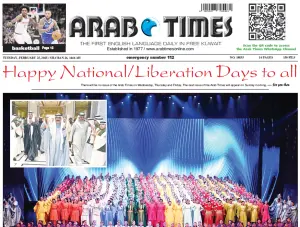31/07/2023
31/07/2023
There are two blocs in the current National Assembly, varying in size. The first and the youngest seek to get what they want, in terms of strength and positions, and this is their right, if they meet the conditions and follow the right paths to reach what they want and the second, the bigger, knows the goals of the first, exploits it, and will use it more to achieve its agendas, knowing that the first bloc will need its positions and votes in the coming days, perhaps to resolve some fateful issues.
The collaboration or deceit between the two parties came to light when members of the second bloc launched an unwarranted attack, pushing for the adoption of numerous laws that would drastically alter the state’s way of life. These proposed changes aimed at “Islamization” involved presenting peculiar and fantastical projects. Some of these laws included the execution of witches and sorcerers, a ban on all plastic surgeries and the closure of related clinics, prohibiting tattoos, re-censoring imported publications and books, establishing a pharmaceutical industry adhering strictly to Islamic law, and preventing women from serving in the judiciary.
Their proposals even extended to imprisoning individuals who imitated the opposite sex and making suggestions regarding power generators. The most audacious proposal was the transformation of Kuwait into the “Islamic economy” capital, as if the state had only recently emerged from a communist, atheist, and faithless past. This agenda seemingly sought to bring the people back into the fold of faith forcefully. In essence, the second bloc’s actions and proposed laws exposed their intentions, revealing a pursuit that was perceived by many as an attempt to impose religious beliefs on the populace and drastically change the state’s way of life.
The government presented a draft law to the High Electoral Commission, but it succumbed to pressure from certain Kandahari deputies, who insisted on including a clause requiring women to exercise their voting and candidacy rights while adhering to “approved provisions and rules” in Islamic law. This addition raised concerns, as it was accepted without objection from most deputies, including those who were expected to uphold fairness and moderation. The only dissenting voice was that of MP Jenan Bushehri, who, interestingly, is a veiled woman herself.
During the discussion of the draft law in the Legislative Committee, there was a question about the specific rules and provisions in Islamic law that women would be required to follow to participate in the political process. The government justified the inclusion of these controls by claiming they were already present in a previous law (though this assertion was incorrect, as those controls had been invalidated by a constitutional ruling). They further argued that the inclusion was meant to avoid confrontation with opposing parties.
However, this excuse was seen as inadequate and demonstrated the government’s negligence and cooperation with extremist factions within Parliament. The law was passed in its first deliberation last Thursday, but there are hopes that it will undergo amendments during its second deliberation. Failing to make necessary changes would be a disservice to Kuwaiti women who, unfortunately, have remained silent in the face of this unfair, regressive, and ambiguous condition. The situation demands attention and corrective action to ensure equality and justice for all citizens.
Representatives hold diverse opinions and positions on various matters, but it is concerning how a government claiming to be rational would collaborate with regressive forces seeking to suppress freedoms and undo the hard-won gains of women through long and difficult struggles. It is disheartening to witness the insertion of such a backward text into the proposed law merely to appease retrogressive elements within the council, all in pursuit of their own power and influence. The current state of Article 16 in the Electoral Commission Law lacks any reasonable interpretation from any party and could lead to severe consequences, particularly affecting the future participation of women as candidates in future elections.
❑ ❑ ❑
e-mail: [email protected]
By Ahmed alsarraf


